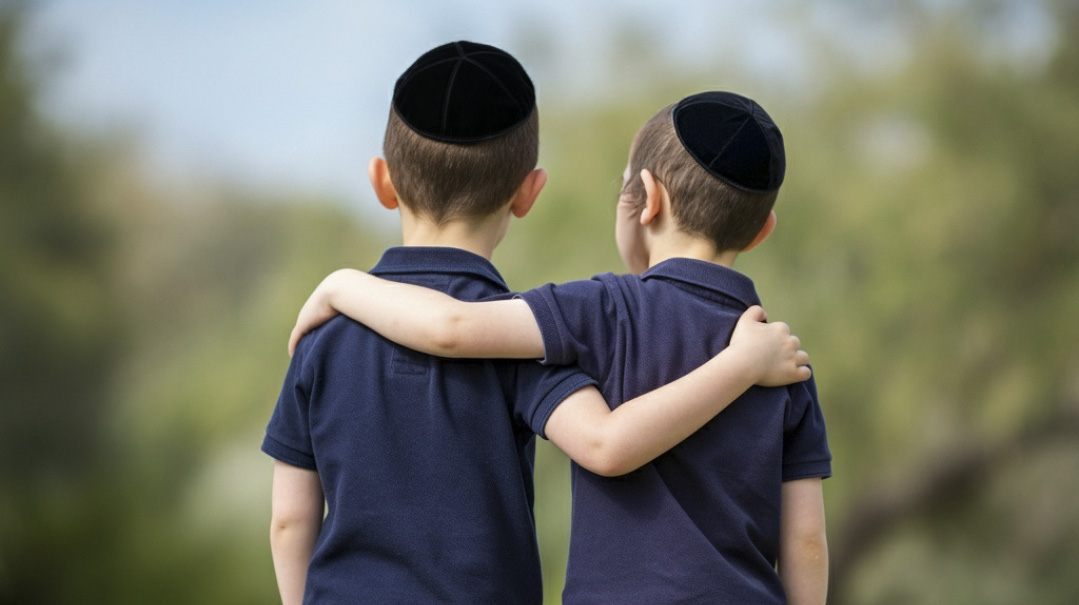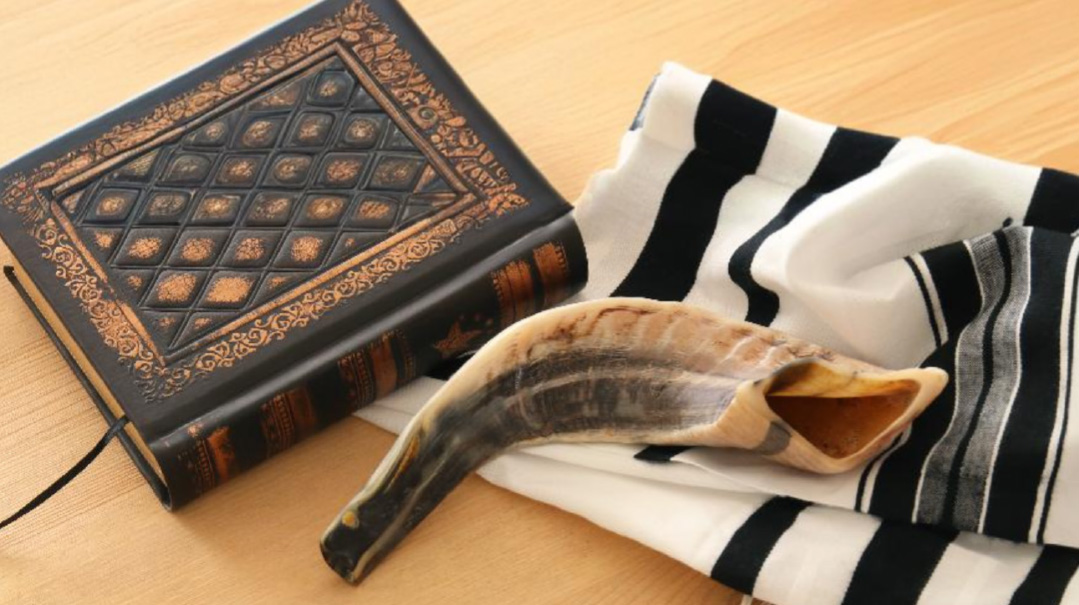A Home, Not a Jail

How can we make our children feel at home within the confines of Torah life?
Prepared for print by Rabbi Eran Feintuch
A non-Jewish man walked past a yeshivah every morning on his way to work. Day after day, he saw the boys through the windows, and found it peculiar that he never saw any boys leaving. On his way home in the evening, it was the same thing. Even when he happened to pass by at different hours, the boys were there. He quickly concluded that it was a detention center for juvenile delinquents. Then one day he saw a boy walking into the yeshivah with a smile, not handcuffed or escorted by police officers.
“What is this place?” the man asked, bewildered.
“A yeshivah,” the boy replied.
“I don’t know what that is,” said the man, “but if it’s not a jail, why don’t you boys ever leave?”
“Because,” replied the boy, “it’s our home! Why should we want to leave?”
We’re all worried about our children. We can’t protect them from the negative forces that surround them like a pack of wolves. Whether it’s bad social influences, technology, or drugs, those forces threaten to extinguish the dreams we have for our children. How do we keep them on the right path?
Most of the time, we use fear. When they’re younger, we threaten them with punishment: “If I ever catch you…” When they’re older, we hope fear of being ostracized by the community will hold them in place. But fear is quick to dissipate. Imagination always makes the forbidden irresistibly appealing and seem well worth the sacrifice. And like the nachash in Gan Eden, the forces around them work relentlessly to convince them that the consequences won’t be so bad after all.
In our generation, more than ever, the key to keeping our children on the derech isn’t to make Yiddishkeit into a jail. It’s to make them feel that Yiddishkeit is their home.
We all know that. We just don’t know how to do it. A Torah life is full of obligations, from the moment we wake up to the moment we go to sleep. How can we make our children feel at home within the confines of Torah life?
The way to do that is to show them an aspect of the mitzvos that speaks to them, something that’s valuable to their lives. We often just teach our children the halachah like an instruction manual, and demand that they fulfill it. Our job in chinuch isn’t only to teach them what to do, but also to help them connect to the mitzvos on a personal level.
Finding value in the mitzvah doesn’t mean lofty levels of spiritual delight. A child can connect to and appreciate a simple idea in the mitzvah. That idea will become an important part of his life, and will grow with him as he develops.
My adult daughter takes davening very seriously. My wife and I don’t recall ever telling her to daven, but she insists that she acquired her connection to tefillah at home. When she was a young girl, she used to have nightmares now and then. We would tell her, “You had a bad dream? Let’s say Hamapil together again.”
That, says my daughter, taught her from that tender age that we can speak to Hashem about our troubles. She didn’t yet connect to the words of the Shemoneh Esreh, or even understand them. But she found something valuable in tefillah, a personal connection that became an important part of her life.
Many of us mistakenly think that if a child does a mitzvah a few times, he’ll automatically taste its sweetness. A mitzvah isn’t an ice cream cone. If we sit and wait for our children to develop their own connection to mitzvos, we’re in trouble. By the time they’re mature enough to do so, they may be long gone. A child can memorize hundreds of Mishnayos, daven three times a day for years, and never really connect to the mitzvos he does. He has to find something of personal value in the mitzvah, something that speaks to him.
How do we impart such a connection to our children? All we have to do is show them our own connection, the aspect of the mitzvah that speaks to us the most. Last month we discussed the importance of finding what we cherish about each mitzvah in terms of our own avodas Hashem. Now we see that this is also the key to educating our children. A connection has to be genuine and heartfelt, as real as the kitchen table. It can’t be explained in words — it has to be a shared experience. We can only share with our children what we ourselves cherish about the mitzvos.
That’s the deeper significance of being a role model. It’s not just that if we perform the mitzvos properly, our children will mimic our actions. Rather, if we show them how we connect to the mitzvos, if we show them what excites us about the mitzvos we do, they’ll want that valuable connection in their own life as well.
When I taught my children the importance of helping out at home, I tried to teach them the value I saw in helping. What was important to me wasn’t that the dishes be washed and the floor spotless. For me, helping at home was about fostering a warm ambience of unity and harmony in the family. My children absorbed that value, and took it with them. As they went through different stages of life, their helping out took different forms, but the value of fostering goodwill in the home accompanied them and grew with them.
When I learned with my children, I never asked them the review questions their rebbis had prepared. I never prepped them for exams or paid much attention to their grades. That’s because what captivates me about Torah study isn’t amassing more and more knowledge. I know that’s important, and that’s how many people connect to learning. But what excites me about learning is using my own questions on the sugya to uncover its depth. So I tried to convey that approach to my children.
From a very young age, I asked them questions about the weekly parshah that I didn’t know the answers to, and encouraged them to ask questions as well. I pushed them to develop their thoughts further, till they too experienced the joy of seeing depth in Torah emerge from their own questions. They carry that with them to this day. Over time, my sons found their own connection to limud Torah, but what they acquired at home is still valuable to them. They use it in their own learning, and with their children and talmidim.
When something is important to you, you don’t want to give it up. The more a child is connected to the mitzvos, the more they speak to him personally, they will be his home. The walls of halachah won’t be the confines of a prison, but rather a haven where he can live and thrive.
There is no vaccine to inoculate our children against the dangers around them. No prison walls are strong enough to keep our children from escaping, if they want to. But a home’s walls don’t need to be escape-proof. If Torah life is meaningful and rewarding for our children, they’ll be far less likely to leave it.
Let’s work on finding what we cherish about the mitzvos we do every day. If we share our discoveries with our children, they too will taste the sweetness of the mitzvos. Let’s experience for ourselves, and show our children, how a life of mitzvos is a home — the only home — where we can really thrive.
This column will appear once a month
(Originally featured in Mishpacha, Issue 900.
Oops! We could not locate your form.






